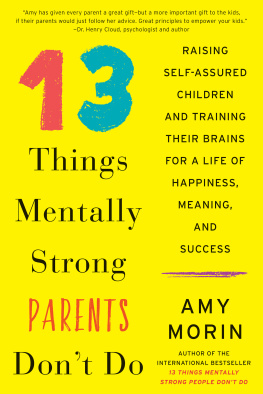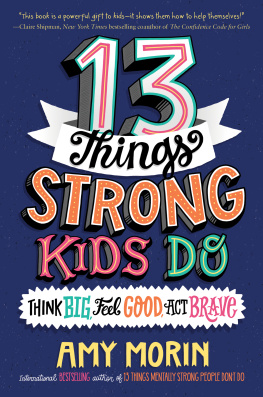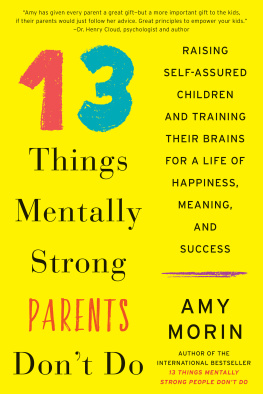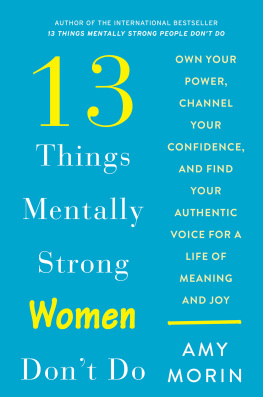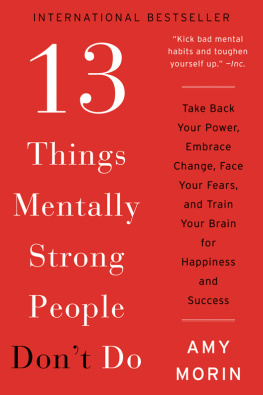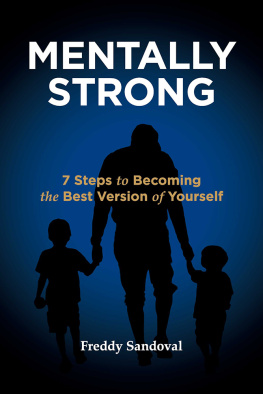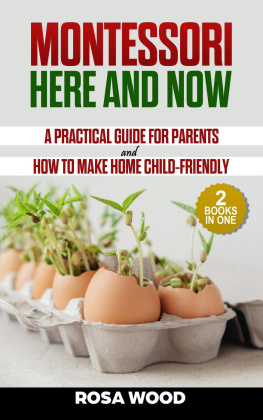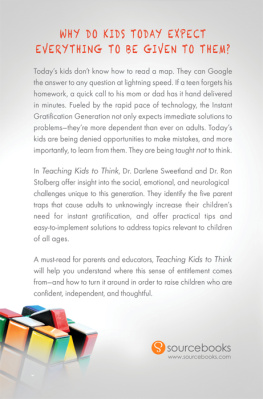Contents
To all those who seek to make a difference in the life of a child
Early on in life, I decided that when I grew up I was going to help kids in need. Throughout my childhood, my parents always helped anyone they could. Both of them were postmasters who seemed to have a special knack for recognizing an underdog. Whether they made anonymous donations to someone in need or they lent a helping hand to someone down on their luck, they were generous with whatever we had.
Its no wonder both my sister and I became social workers. Both of our parents were unofficial social workers for years. But long before I ever got my social-work license, my goal was to become a foster parent.
I had grown up knowing that there were kids who didnt have families. Some of them didnt have homes. And many of them had never felt loved. So I decided that someday, when I had my own house, Id take in kids who needed a place to live.
When I was in college, I met Lincolnmy future husband. He was an adventurous person who loved to travel, meet new people, and try new things. Early on in our relationship, I told him my goal was to become a foster parent. Fortunately, he loved the idea. Right after we got marriedwhile I was still finishing graduate schoolwe bought a four-bedroom house and started the foster-care licensing process. We chose to become therapeutic foster parents, which meant we would raise children with serious behavior problems or emotional issues. There were classes to take, a home-study process to complete, and modifications that had to be made to our home to meet the foster-care licensing requirements.
But about a year later, just as we were finishing up the licensing process, my mother passed away suddenly from a brain aneurysm. At her funeral, I heard countless storiesmany of them from people Id never metabout how she helped them in some way or other. Hearing those stories of all the lives she touched reminded me about what was really important in lifethe legacy you leave behind. My mothers generosity fueled my desire to help children more than ever.
Within a few months, our therapeutic foster-care license came through and our journey as foster parents began. By then, I was working as a psychotherapist at a community mental health center. I worked exclusively with children, many of whom had behavior problems, and their parents. Becoming a foster parent gave me an opportunity to apply the principles I was teaching parents in my therapy office to the children who came into our home.
Lincoln and I loved being foster parents and we began to talk about adoption. None of the children who stayed with us were available for adoption, however. They all had plans to return to their birth families or to be adopted by other relatives. So we started looking at the adoption waiting lists to see if we could find a child who might fit into our family well.
But on the three-year anniversary of my mothers death all of our hopes for adopting a child changed in an instant. Late that Saturday evening, Lincoln said he didnt feel well. A few minutes later, he collapsed. I called for an ambulance and the first responders rushed him to the hospital. I called Lincolns family and they met me in the emergency room. I wasnt sure how to explain to them what happened. It had all happened so fast.
We just sat there in the waiting room until a doctor came out and invited us into the emergency room. But rather than take us to see Lincoln, he took us to a small, private room and sat us down. The words that came out of his mouth changed my life forever. Im sorry to tell you, but Lincoln has passed away.
And with that one sentence, I went from planning to adopt a child to planning my husbands funeral. The next few months were a blur.
We later learned hed died of a heart attack. He was only twenty-six and didnt have any history of heart problems. But ultimately, it didnt matter how he died. All that mattered and all I knew was that he was gone.
Fortunately, we didnt have any children living with us at that particular time. I could only imagine how traumatic it could have been for a foster child to have been there. Wed actually had plans for a little boy to move in later that week. When his guardian heard the news, he found him a different foster home.
For a while I wasnt sure I wanted to be a single foster parent. I worked a full-time job, and with foster children, there are always lots of appointments, visits with birth families, and meetings with guardians and lawyers. It would be a tough job from a practical standpoint, but also an emotional one. I took about a year off from foster parenting. With help from my faith in God, the love of my friends and my family, and the knowledge I had about grief from my work as a therapist, I put one foot in front of the other.
It took about a year for the fog from grief to start to lift. But once I felt like I was in a place where I could be an effective parent, I notified the foster-care administrators that I was ready to be a foster parent again.
I began my new adventure as a single parent by doing mostly weekend respite work. That meant I cared for foster children whose full-time foster parents either needed a break for a few days or they needed to attend to family affairs without their foster child present.
The transition back into foster parenting went smoothly and gave me something to look forward to on the weekends. As a young widow, I found that staying active was sometimes a challenge. But caring for children gave me a sense of meaning and purpose.
It took a couple of years to establish a new sense of normal in my life without Lincoln. Many of the things I enjoyed doing with Lincoln werent as much fun without him. And although some people encouraged me to start dating, I wasnt interested.
But that all changed when I met Steve. He was different from anyone Id ever known. And it didnt take long to fall in love. Fortunately, he wasnt scared away by the fact that I was a widow or that my goal was to continue being a foster parent.
After dating for about a year, we eloped to Las Vegas and began a new chapter in our lives. Steve had to go through the foster-care licensing process toobackground check, classes, and a home study. But it was faster this time around since my home already met the foster-care licensing standards. Within a few months, Steve was a fully licensed foster parent.
Our lives melded together quite nicely and life was smooth sailing for a while. But then, Steves father, Rob, was diagnosed with cancer. At first, he was given a good prognosis. But despite multiple treatments, his health deteriorated. A few months later, doctors said his condition was terminal.
The news hit me like a ton of bricks. Id already lost my mother and Lincoln. Rob and I had grown close and I couldnt imagine losing him too. I started thinking about how unfair it was that I had to lose another person so close to me in such a short amount of time.
But before I let myself host a lengthy pity party, I reminded myself that mentally strong people dont feel sorry for themselves. Through my work as a therapist and my personal experiences with grief, I knew bad habits like self-pity could rob me of mental strength, if I let them. And with that, I sat down and I wrote a list of all the things mentally strong people dont do.
I published my list of the thirteen things mentally strong people dont do to my blog, hoping someone else might find it useful. Within days my list went viral and it was read by tens of millions of people. But very few people knew that Id written that article as a letter to myself during one of my lowest points.
Just two weeks after that article went viral, Rob passed away. And throughout my grief I reminded myself not to do the things mentally strong people dont do.

